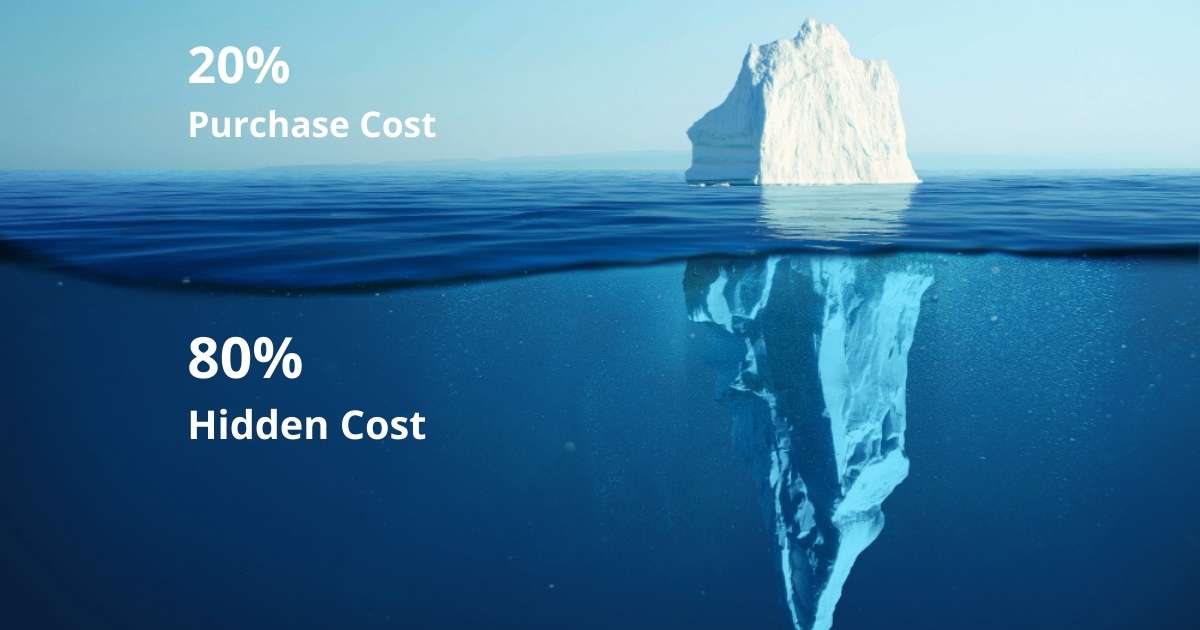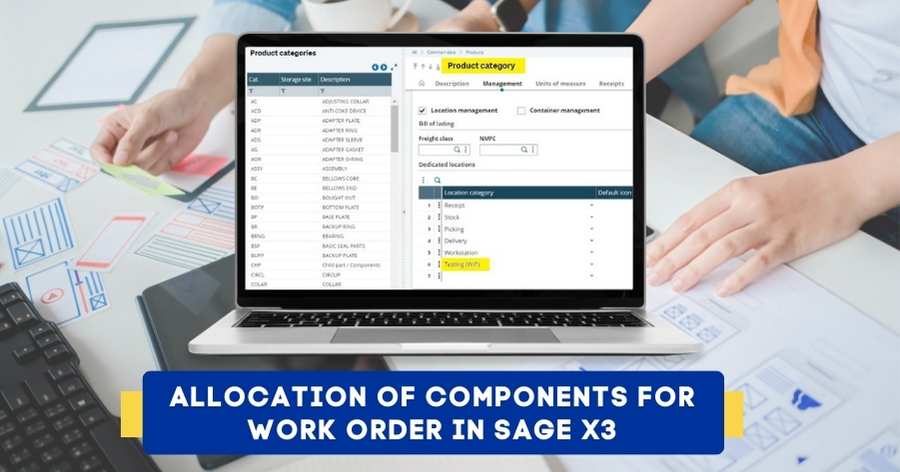ERP system is a versatile software solution that enables companies to manage their day-to-day business functions through a single platform. This ensures companies get desired outputs with increased ROI.
In this post, we will learn about what is cold storage ERP, its types, challenges, benefits, and features.
What is Cold Storage ERP Software?
Cold storage ERP is a modern software system used to manage the operations and assets of a cold storage facility. The business management software offers a range of features to help you manage your facility more efficiently, from inventory tracking to temperature monitoring. It can help to save time and money in the long run by ensuring that your operations are running smoothly and efficiently.
With the help of a cold storage ERP, you can automate many of the tedious and time-consuming tasks associated with the operation of a cold storage facility, such as tracking temperatures, generating reports, and monitoring activity.
Cold storage ERP is an invaluable tool for any cold storage facility and is a must-have for any business that wants to maximize its productivity and profits.
Types of Cold Storage
There are mainly three types of cold storage:
Control atmosphere cold storage: Control atmosphere cold storage is mainly used for long–term storage of perishable fruits. In this type of cold storage, apart from temperature, concentrations of oxygen, carbon dioxide, ethylene, and nitrogen are maintained as per the requirement of the storage materials. These are mainly used for the storage of apples, pears, lemons, litchi, mango, and other perishable fruits.
Temperature-controlled cold storage: This type of cold storage is mainly used for the storage of grains, dry fruits, and spices. In this type of storage, a constant predetermined temperature is maintained throughout the room.
High-humidity cold storage: This type of cold storage is mainly used for the storage of fresh vegetables. In this type of storage, a constant predetermined temperature with high humidity is maintained throughout the room. Apart from temperature and humidity, carbon dioxide and air circulations within the products are maintained automatically.
Wherever there is inventory, suppliers, and vendors, there will be a need to maintain the stocks, information, and details about SCM in one place along with the requirements of the clients.
The cold storage ERP is useful for cold storage companies to increase the quality and accuracy of information as well as give up-to-date information regarding the account and stock position of any item, handle finance/accounting, sales, service, manufacturing, customer relationship management, etc. in one place.
You May Also Like:- ERP For Food Industry
Overview of the Cold Storage Industry in India
India is the second largest producer of fruits and among the top 5 largest producers of various vegetables in the world. There are a lot of tasks that take place to keep the number one position in the country. From small to big, all processes matter like – SCM, Packaging, Vendor management, storage facilities, etc. The right supply chain management softwarecan help find the appropriate strategy to be on the top of the list.
One of the most important and tedious tasks is the preservation post-harvest of perishable items. A lot of these products need to be stored for a longer duration in cold stores, especially during transport and distribution to prevent losses after production. This is where the cold storage industry comes in. The cold storage ERP helps to maintain the quality of products, slower the rate of deterioration, and results in a longer storage life.
Challenges Faced by Cold Storage Companies
Cold storage ERP involves managing large amounts of data that must be stored securely and efficiently. However, the challenges associated with cold storage ERP are typically related to scalability, security, and most crucially, the capacity to access data quickly and accurately.
Scalability of Business
This is a major challenge in cold storage ERP as it allows businesses to expand without having to invest in additional hardware or software. It also ensures that businesses can add new processes or features without having to invest in more hardware.
Security Concern
Security is another issue for cold storage ERP. With more data being stored in the cloud, businesses need to ensure that their information is secure and protected. This means ensuring that the data is encrypted and only accessible to authorized users.
Data Accessibility
Getting quick and accurate access to business data is very critical. This is specifically important if companies want to stay competitive since they need to be able to quickly access and analyze data to make quick and informed decisions.
Benefits of Cold Storage ERP
Sage X3 & Sage 300 cold storage ERP offers a myriad of benefits to companies and below listed are the major advantages-
- Customer stock detail
- Goods inward & outward management
- Inventory stock detail
- Assign unique lot no
- Notification to customer, vendor & supplier
- Remainder to customers about payment dues
- Invoice (As of date )
- Daily inward & outward detail
- Account management (Account balance, Profit & loss, Trial balance, Balance Sheet )
- Auto email
- User right management
- Stock shifting from one location to another
- Item detail (Rack Wise, floor-wise, chamber-wise)
- Lot/Daily/Party wise reports.
- Auto backup facility
You May Also Like:- ERP for Alcohol Industry
Features of Cold Storage ERP
Sage X3 ERP for cold storage management is an important tool for businesses that rely on long-term storage of perishable items. The cold storage ERP is specifically designed to help businesses better manage the operational activities associated with storing items in a cold storage environment. Here are some of the key features of this cold storage ERP:
Inventory Management
This feature allows businesses to track inventory levels and daily stock movements in their cold storage facility. The inventory management system also allows them to improve product shelf life and reduce spoilage.
Resource Scheduling
Cold storage ERP can help businesses optimize the use of resources such as personnel, machinery, and space. The logistics ERP increases productivity and reduces costs for efficient utilization of resources.
Temperature Monitoring
Sage 300 ERP cold storage software keeps track of the temperature inside the cold storage facility. The cold storage ERP enables companies to quickly identify items that are in danger of becoming spoiled.
Quality Control
The QC feature of cold storage software helps businesses to monitor the quality of the goods stored in the cold storage facility. It can also help them to identify products that need to be replaced due to quality issues.
Real-time Reporting
Sage 300 ERP for cold storage provides businesses with real-time reports on their inventory levels, resource utilization, and temperature levels. This information can be used to make informed decisions and optimize operations. The reports generation time of the cold storage ERP software is also short which delivers accurate reports.
Warehouse Management
The advanced warehouse management software helps in optimizing space utilization and increasing the efficiency of the supply chain. The warehouse management system of cold storage ERP tracks product movements and helps in minimizing the loss due to shrinkage and optimizes inventory levels.
Conclusion
With the right implementation of cold storage ERP software, cold storage companies can easily improve the accuracy and overall effectiveness of warehouse operations. It also helps companies to have precise inward and outward detail account management with stock management. With Sage X3 & Sage 300 ERP solutions, cold storage companies can manage inventory orders and can do much to get incredible business outputs.







